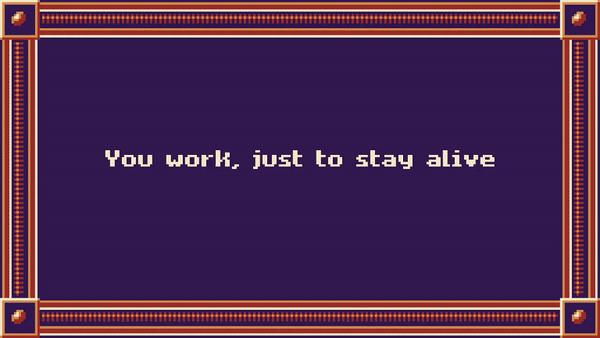Graphs are banned!

Since I’m once again approaching this magical moment of having to announce a new game and start to actually market it to people, I wanted to read up on some things I haven’t really tried so far and accidentally stumbled over this Jenga Tower of shaky assumptions that tried to sell itself as some kind of accurate market analysis about which genre of game does well and steam and which doesn’t. I’m not going into the details of why I think it’s deeply flawed and irresponsible, because I tried and it just made me want to explode and what good would that do?
Instead I want to talk about something else I noticed while I was reading it the first time: I felt incredibly anxious and defensive, because well, I’m making a platformer again! And Platformers don’t sell! Which I’m not disputing here, by the way. It certainly is a bit of a rough genre to make stuff in, but I also enjoy making them, so here I am. Anyway back to feeling anxious: After I read the guide on how to set up a Newsletter for your game on the same page and how it talked about instilling a fear of missing out in people to make them subscribe to you, something fell into place. It’s not a secret that I don’t go along with a lot of business advice for game developers and I think I have good reasons for it. However, one thing I didn’t really think about until yesterday was how a lot of these kinds of posts work really well in instilling a certain sense of despair in the people that are reading it.
Just look through the way the post I initially linked to keeps harping on how doomed your project is when you make the decision to make it in a genre that doesn’t seem to be popular on Steam. It basically breaks down to “if you’re not making a deckbuilder, or management game, you’re basically set up to fail”, which obviously is going to cause a lot of anxiety in people who are either inexperienced and/or are fairly deep into a project that just happens to be in a genre that isn’t one of those I just mentioned.
The question now is: What purpose does instilling a sense of despair in people serve here?
Well, if we go back to that part I read about how to set up an email newsletter, we understand that fear is a very strong motivator to get people to do something you want them to do.
That’s how most advertising works, doesn’t it? You instil a sense of inadequacy, or fear in people, make them feel like it’s their fault that they feel this way and then turn around and sell them the cure for these feelings you just created.
With that in mind, it makes a ton of sense why a lot of the business and marketing advice for game developers out there, works really, really hard to make its readers feel inadequate and afraid: It’s because of lot of the people who are offering said advice are also offering consultancies and exclusive content as well.
So the purpose of these posts isn't really about informing people about strategies on how to sell their game (after all, just knowing that platformers might have a harder time on Steam, doesn’t help anyone who tries to sell them anyway), it’s about their writers trying to sell themselves as experts to an audience they manipulated into feeling inadequate and desperate.
There’s one talk about games marketing I keep going back to and it’s this one by Lauren Clinnick from 2017. I like it, because it very early states “Marketing is a lot more about hope, than it is about despair” and the entire talk carries this energy. It’s not about instilling a feeling of inadequacy and fear in people, but instead it tries to make people feel more comfortable in putting themselves and their work out there.
And if you take this back to that article that kicked off this train of thought, you can look at it and wonder: What actual advice does this provide to people aside from “if you’re making a platformer, finish it as quickly as you can and do something else”?.
What good does it serve to write something that could cause someone, who’s working on their first game to turn around and say “well, it’s absolutely hopeless and I guess I just stop doing this, because I’m just wasting everyone’s time!”.
It’s weird, but I did end up with some valuable new insights on how I want to sell my next game to people. I don’t want people to listen to me, because I made them feel afraid they might miss out on something otherwise. I want them to listen to me, because they genuinely like what I have to say.
And I’m going to ignore anyone who thinks the best way to make me listen to them is to make me feel bad about myself and my work, and I suggest everyone else to do the same.
We talk a lot about trying to make games a more welcoming place. If we want this to happen, we need to push back against people that exploit other people’s fears to sell their own medicine to them.